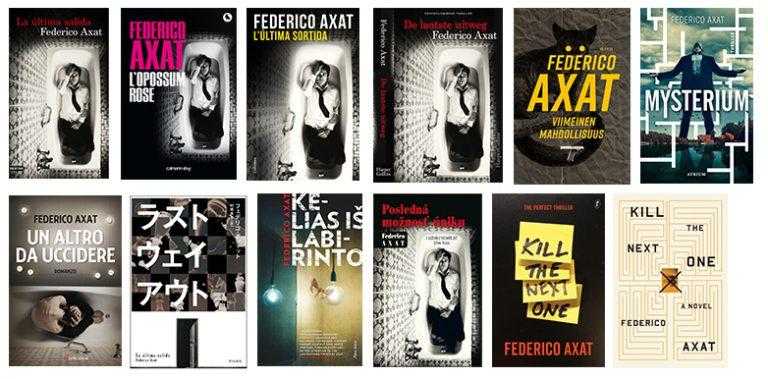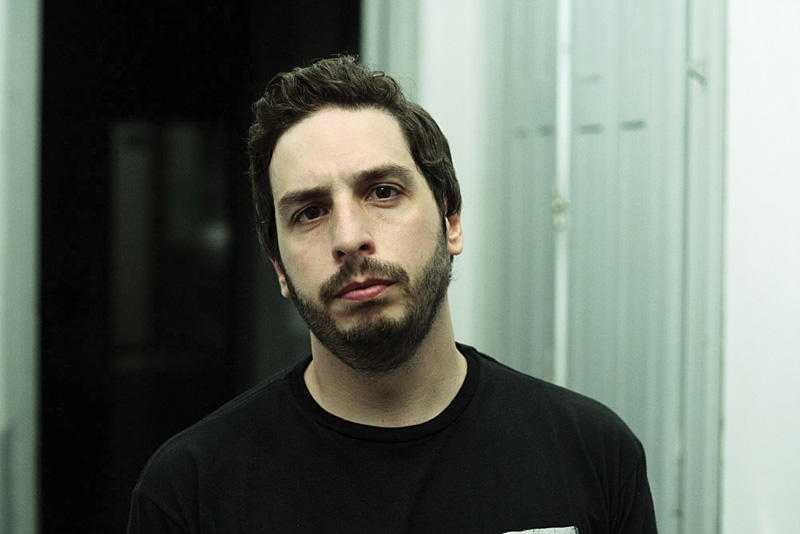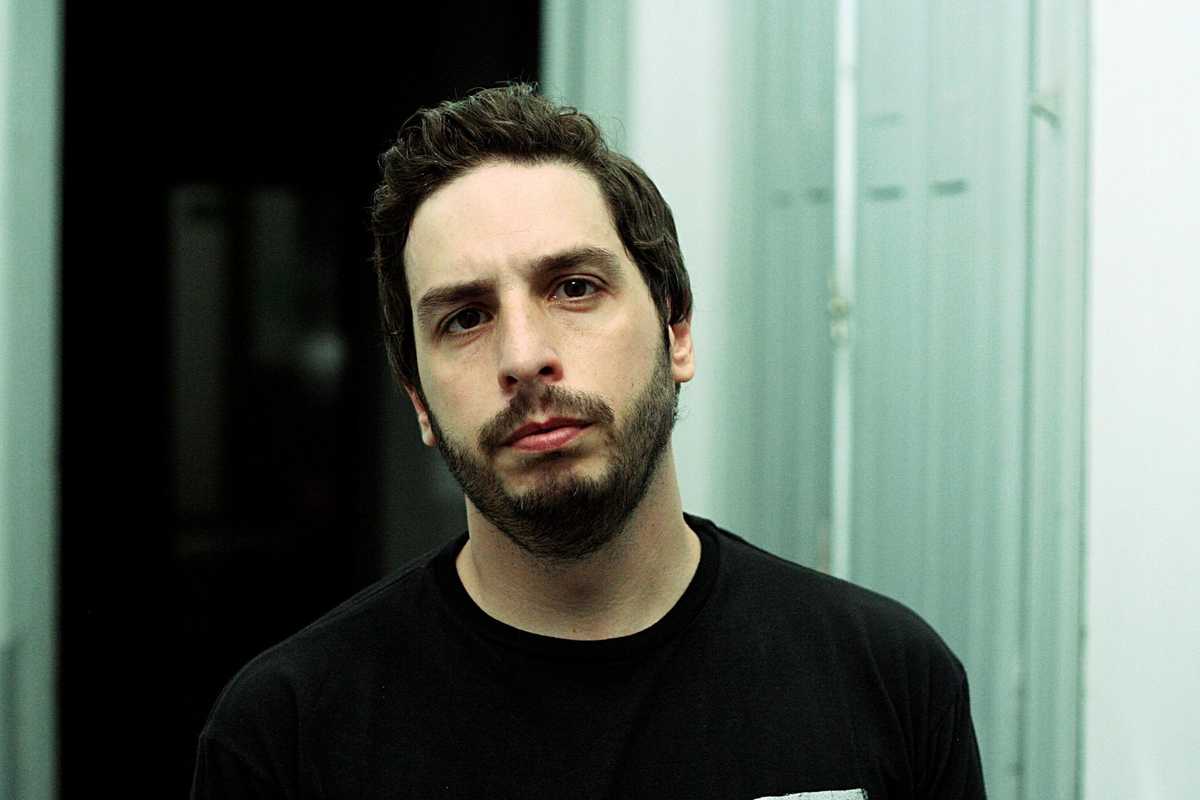"La última salida"/"The Last Way Out" is the forth novel written by Federico Axat and the first that gained such global recognition and has been translated to over than 30 languages around the world. We interviewed Federico Axat and had the chance to get some answers concerning the beginning of his writing career, his writing methods, his future plans and many more.
-You are a civil engineer and work in the field. Someday you decided to follow your dream of becoming a writer. Is it exact? I read the story of the announcement of your decision to your family and friends. Can you share it with us? How important has the support of your family and your loved ones been?
The truth is that I still work as a civil engineer from time to time. It`s really difficult to live only from writing; you have to take it one step at the time. The moment I told my family about it was a very strange moment, because they had no idea that I like writing, but they were supportive. I was also scared and full of doubts; I didn´t have any connections in the business or knowledge about how to write a novel, which was my goal at that time. Finally, everything worked really well, but it took years. The lesson in that is that one should risk and be patient.
-The title of your former book "El pantano de las mariposas"/"The bog of the butterflies" is significant for the story (according to an interview I have read). On the other hand, the title of "La última salida"/"The Last Way Out" doesn't reveal anything more than the first few pages. However, its translations have quite ambiguous or deceptive titles: "Kill The Next One" in English, "L'opossum rose" in French, "Mysterium" in German. What is your opinion on them? Did you have any control on the title choice?
“The bog of the butterflies” is a tittle that was there quite from the beginning of the book; it was an easy one. It sounded good and also works in different layers. With “The Last Way Out” it was much harder, but in the end I liked it. On the one hand, there is the obvious reason of the suicide, but also there is the concept of the labyrinth and its many false exits. The novel is a labyrinth, in a sense, so the title suits it.
-You start "The Last Way Out" with an extract from "Exit" of U2. Did it somehow contribute to the inspiration of that first idea, or to the unfolding of the story?
It was the other way around. I was deep in the story when I remember the song, which happened to be about a suicidal. I am a U2 fan, so the song would have eventually ring a bell.
-According to former interviews, you started writing "The Last Way Out" in a quite similar way to your first book, "Benjamin", without knowing the ending. On the other hand, in "The bog of the butterflies" you only knew the end. What is your golden rule for writing? Do you consider your characters as living persons? Do you discuss with them to keep the story flowing?
I can never see the story ahead; which can be a little terrifying at times. You can say that the characters dictate the plot, but for me it is also the plot itself that has some kind of life. I plan one or two chapters ahead, but that is it. When you write your first novel and you change your ending at the very last minute and then you have to rewrite half of the book, you think that that is maybe because you are inexperienced. But when it happens again and again, you start to wonder. In my case, I accepted the fact that I discover the story while I am writing it, and that gives me freedom. In the first draft usually characters appear from nowhere, others change their names or even their relationships. I do a very deep rewrite. That’s my method.
-The idea for "The Last Way Out" waited quite long. How did Ted feel when you set him free from that drawer? Was he satisfied with the evolution of his story?
Unfortunately every idea has to wait quite a lot to finally end up in paper. Having an idea for a book takes much less time than writing it, I am afraid. And that is a good thing, because it give you time to be sure about it. In the beginning I took notes of those ideas, but eventually I understood that if an idea is good enough… you will simply remember it. As for Ted’s opinion, I don’t know. Once a book is finished I rarely come back to think about it or its characters.

-Hollywood has acquired the rights to "The Last Way Out". Since late 2016 we haven't heard anything new. Is the project rolling? Will you co-operate in the script? Any preferences about the role of Ted and Laura?
The script is in development at the moment, which is all I know about it. I try not to think much about that and focus on my next book (which I am finishing in a couple of months, I hope). I always thought that Bryce Dallas Howard would be an excellent Laura Hill.
-A provocative question. Why Hollywood? Especially since Spanish and Spanish-speaking cinema is alive and kicking.
No particular reason. All that is beyond my control. My agent and I had an offer from a studio that we felt understood the book and wanted to do something interesting with it. That was great for us.
-I was shocked to read that "The Last Way Out", your forth (!) novel, was your first to be published in Argentina, your homeland. Why is that? How essential was the opening to the English-speaking readers?
That’s true. I started publishing outside my country. It was since the success of “The Last Way Out” and its many translations that the Argentinian editors agreed to publish the book. I had never seen one of my books in a bookstore up until this one. Now the previous ones are being published which is great. As I said before, many things are beyond the author's control. Therefore, I tried to concentrate in the things that I can control, which is basically what everything that happens until I put the word “END”.

-You are quite active in the social media. How important is the interaction with the readers? Which was the most distressing comment you have received? And which was the most flattering?
Yes, I am quite active and I answer personally every message I receive. The truth is that once I finished a book and the result is more or less the one I expected. I feel good with myself and that’s as far as I can get. You can’t please everyone. When I am correcting and doing the rewrites I ask certain people their opinion and at that moment I try basically to see if the mechanism of the book works. For example, if they discover a trick or things like that. But once I finished, then I am finished. I rarely try to explain things to an unhappy reader. I must admit that almost all the comments I receive are favorable and enthusiastic. I always like if someone had a good time with one of my stories. But maybe the unhappy ones simply don’t like to express it that much to the author, I don’t know.
-You have been compared with Stephen King since your beginning as a writer. And you don't really seem to feel uncomfortable with this comparison. Has it influenced you?
I can never be uncomfortable. He is the best! I certainly learned a lot from him. I think my style is very different, though. I feel that I could find my own voice, and this is probably one of the most difficult things for a writer. It’s even something that you can’t do entirely on command. It takes time. When you start writing, your roots are quite visible. Then your voice eventually appears. I feel that I am a more “rational” writer that King, if this has any sense at all.
-After four books and a contract with Hollywood have you managed to make a living from writing?
Not entirely. I mean, things are going well today, but writing is a job with a lot of uncertainty. So you have to be a little more careful than usual.
-Is now your motivation for writing different than in the beginning? Which lessons have you learned?
-No, it is exactly the same. That’s the secret for me. I like writing, conceiving stories, developing them in my head, and then fighting against each paragraph to make it work. I simply love it. It’s my thing on Earth. I felt it when I was 15 or 16 and it was a pure force, one of the only things I was completely sure about. So publishing books is a consequence and a necessity, but it’s never the main goal. It will never be.
-When should we wait your next book? Last spring you had written some 70 pages for a story "with the same DNA with "The Last Way Out"". Aren't you afraid of repeating yourself?
I am in the final stages of that story, and right now I am very excited about it. It is similar to "The Last Way Out" in terms of genre, but the book has its own identity. I really like it. I would love to publish it next year, but first I have to finish it. I’m frankly not afraid of repeating myself. The second I think a plotline is similar to something I already did, I look the other way.
Relevant article

